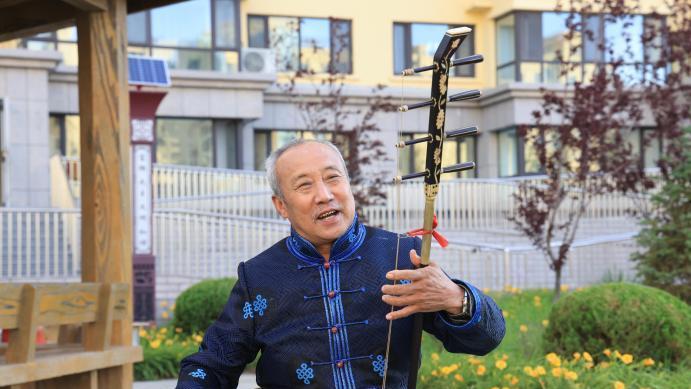China includes smartphones in digital product purchase subsidy plan, sparking enthusiasm for consumption
Starting on Monday, a subsidy plan for purchasing new mobile phones and other digital products will be implemented nationwide, triggering a surge in customer inquiries over the weekend.
On Saturday, the Department of Commerce in South China's Hainan Province announced its subsidy policies for purchasing three categories of digital products - smartphones, tablets (including learning machines) and smartwatches or wristbands.
These digital products priced below 6,000 yuan ($819.09) per item will receive a one-time subsidy covering 15 percent of the product's sales price after the retailer's discount, according to the plan. Each consumer can receive a maximum subsidy of 500 yuan per item, with a limit of one subsidized item per category for each customer.
The subsidy plan is in line with a general guideline released by the Ministry of Commerce (MOFCOM) on Wednesday.
On Sunday, the Beijing Municipal Commerce Bureau also released detailed subsidy rules for digital product purchases on the bureau's official WeChat account. The subsidy policy is the same as the MOFCOM's and Hainan's plans.
An employee at a smartphone retail store in Beijing, who declined to be identified, told the Global Times on Sunday that the store has seen a surge in customer inquiries over the weekend.
"Most customers are specifically asking about smartphones, with some expressing concerns about inventory levels and the possibility of stock shortages once the subsidy policy is implemented. For that, we have adequately prepared our inventory to meet the demand," the employee said.
A Beijing resident surnamed Zhang, who visited the smartphone store, told the Global Times on Sunday, "I've been eager to upgrade my phone and have been anticipating new discounts to be revealed in the city. I find the 6,000-yuan price range very attractive, as it provides a wide variety of high-performance digital products."
"Many people I know are also eager to buy new phones due to the anticipated subsidies. That's why I decided to visit the store in person first. Once the subsidy policy is introduced, I'll be ready to make my purchase," Zhang said.
In the first 11 months of 2024, China produced 1.504 billion mobile phones and launched a total of 393 new models, which can meet users' personalized upgrade needs, Xu Wenli, an official with the Ministry of Industry and Information Technology, said at a press conference held on Thursday introducing the digital product subsidy plan.
"As of the end of 2023, China's mobile phone users reached 1.727 billion. If 10 percent of these users participate in a phone purchase subsidy program, it would generate a 100 billion yuan market for new device purchases," said Xu.
Wang Peng, an associate research fellow at the Beijing Academy of Social Sciences, told the Global Times on Sunday that the subsidy can stimulate market consumption, and increase sales in the digital product sector. It can also boost consumer confidence, encouraging greater willingness to spend. This helps establish a virtuous cycle that further invigorates the consumer market.
"Such a digital product subsidy plan will create more development opportunities for the relevant industrial chain," Wang said.
Xu also said that a single mobile phone contains thousands of components and parts. The sales increase driven by the purchase subsidy will also create new growth for the upstream supply chain, leading to business expansion in related fields.
Apart from the digital product subsidy policy, the MOFCOM on Wednesday also unveiled the trade-in plan for home appliances for this year, increasing the number of eligible categories from eight in 2024 to 12 in 2025.
Under the new trade-in plan, each consumer can be subsidized for one piece of each type of product (the maximum subsidy for air conditioning products is three pieces), with the subsidy of each piece not exceeding 2,000 yuan.
In March 2024, China released an action plan to implement consumer goods trade-ins and large-scale equipment upgrades, nearly 15 years after the last such renewal campaign, the Xinhua News Agency reported.
MOFCOM data revealed that its trade-in program boosted the sales of automobiles, home appliances, and other items by over 1.3 trillion yuan in 2024.
Photos
Related Stories
Copyright © 2025 People's Daily Online. All Rights Reserved.









